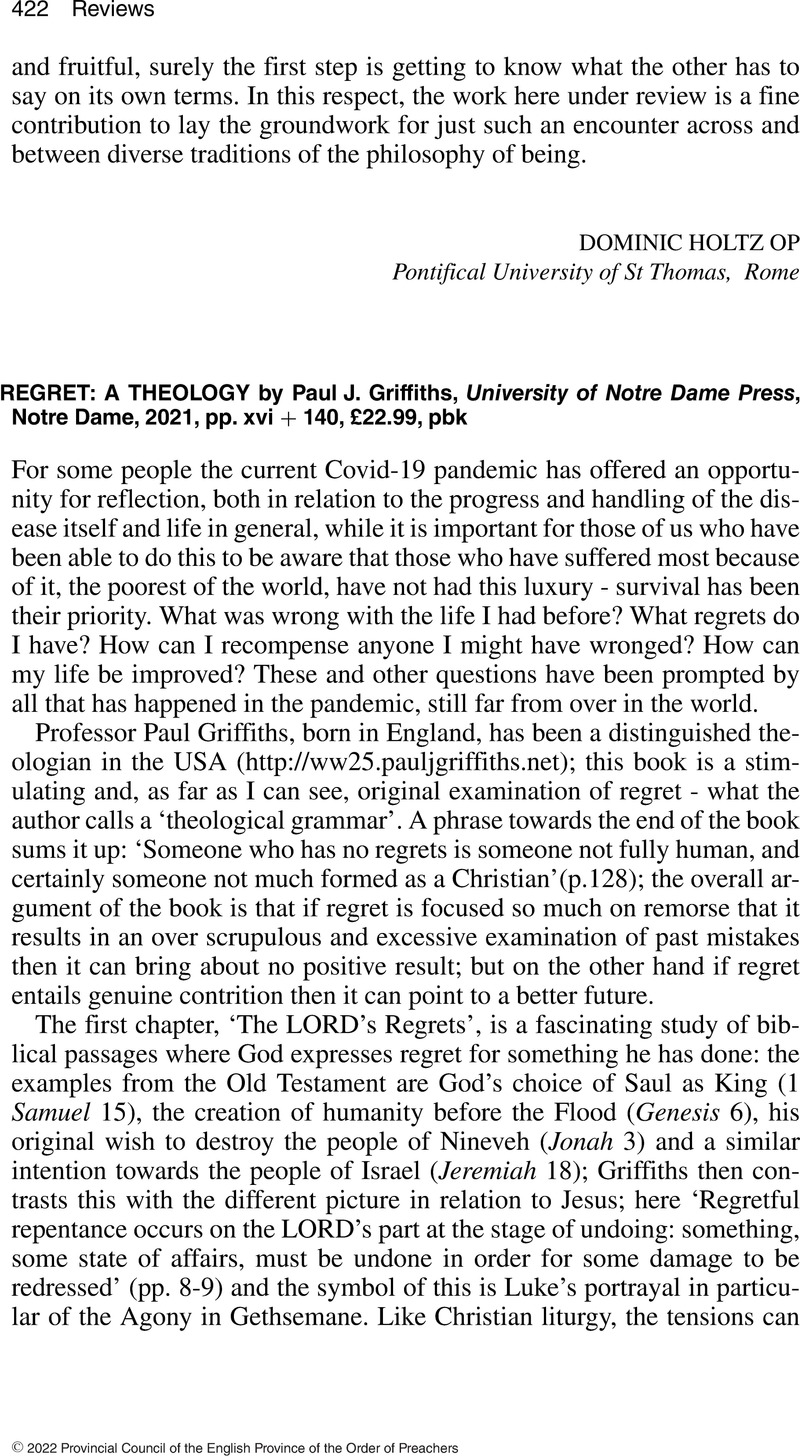No CrossRef data available.
Article contents
Regret: A Theology by Paul J. Griffiths, University of Notre Dame Press, Notre Dame, 2021, pp. xvi + 140, £22.99, pbk
Review products
Regret: A Theology by Paul J. Griffiths, University of Notre Dame Press, Notre Dame, 2021, pp. xvi + 140, £22.99, pbk
Published online by Cambridge University Press: 01 January 2024
Abstract
An abstract is not available for this content so a preview has been provided. Please use the Get access link above for information on how to access this content.

- Type
- Reviews
- Information
- Copyright
- Copyright © 2022 Provincial Council of the English Province of the Order of Preachers


